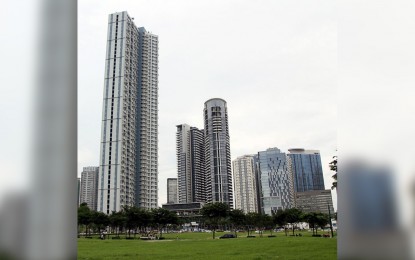
(PNA file photo)
MANILA -- A lawmaker on Friday endorsed to the Marcos administration the 2022 Fiscal Consolidation and Resource Mobilization Plan that was released by the previous administration to address the current economic challenges brought about by the pandemic, inflation, and outstanding national debt.
Aklan Rep. Teodorico Haresco, Jr. said the plan of the Duterte administration's Department of Finance (DOF), led by then finance secretary Carlos Dominguez III, seeks to modify and supplement existing tax laws for more effective and efficient revenue collection.
Haresco said it proposes the deferment of the personal income tax reduction under the Tax Reform for Acceleration and Inclusion Law; modifications to the Value-Added Tax (VAT) system; and expansion of tax administration to include social media influencers.
He said it also pushes for additional excise taxes; expansion of health and sin taxes; admission charges for casinos and imposition of gaming tax on electronic betting; and carbon emissions and cryptocurrency taxes.
“The needs of the times require the government to prioritize seeking additional sources of revenue to pay off national debt and finance its programs. This can be made possible through a fiscal robustness strategy focused on refocusing our current tax laws and revenue collection,” Haresco said.
In a statement, new Finance Secretary Benjamin Diokno said he aims to tackle the country’s economic problem by focusing on growth and tax management, stating that the challenge for the government is to ensure that “our growth must be higher than interest payments to creditors.”
Haresco expressed confidence that President Ferdinand Marcos Jr.’s economic team is most highly experienced and familiar with "proverbial rough roads" towards the implementation of a fiscal consolidation and resource mobilization plan.
Davao City Rep. Isidro Ungab, meanwhile, said the review and evaluation done by the President’s economic team for the government’s medium-term macroeconomic assumptions and fiscal program, and growth targets for FY 2022 to 2028 are "sensible" moves to address the economic challenges the country is facing such as the pandemic, high inflation rate, and impact of geopolitical conflicts, among others.
“The pronouncements made by the economic team as regards the newly updated medium-term macroeconomic assumptions, fiscal program, and growth targets for 2022 to 2028, while underscoring the administration’s priorities and fiscal strategy, including the domestic developments and external pressures, will serve as a guide not only to the government but to economists, businesses, and stakeholders in accelerating economic growth,” Ungab said.
He added that this would be a "pivotal point" for the Philippines toward the trajectory of resilient economic recovery.
Ungab emphasized the significance of having a well-crafted economic framework and fiscal program geared towards “achieving inclusive and sustainable development, responsive to the aspirations of the Filipino people.”
The medium-term fiscal framework’s goals, he said, are reducing the deficit, promoting fiscal sustainability, and enabling robust economic growth, which all coincide with the objectives of the updated medium-term macroeconomic assumptions and fiscal program, which include the creation of more quality jobs, reducing poverty incidence, and achieving inclusive and resilient growth within the term of the President until 2028.
“For our part, Congress ought to support the President’s economic agenda by passing laws essential to rebuilding the economy, spurring the creation of jobs, encouraging MSMEs (micro, small and medium-sized enterprises), and reducing poverty," Ungab said.
He noted that the 2023 expenditure program of the national government would be aligned with the updated medium-term fiscal framework.
Budget Secretary Amenah Pangandaman earlier said the latest gross domestic product assumption for the year was changed to between 6.5 percent and 7.5 percent, lower than the 7 percent to 8 percent approved by economic managers in May, “in consideration of recent external and domestic developments.”
However, the 2023-2025 forecasts were hiked to 6.5 percent to 8 percent from the previous 6 percent to 7 percent.
The 2026-2028 growth assumption is between 6.5 percent and 8 percent.
“The increase in household consumption and private investments, along with a robust manufacturing industry, high vaccination rate, improved health care capacity, and the upward trend on tourism and employment has allowed us to safely re-open the economy and register a positive growth for the first three months of 2022,” according to a statement. (PNA)
